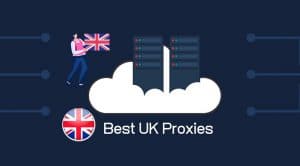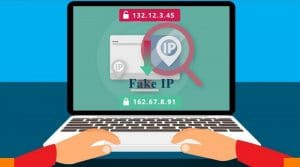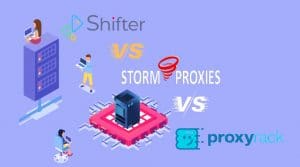
Anonymity is the name of the game, and you’ve come here to figure out just what type of anonymity you need.
Proxies and VPNs are very similar services on the surface. They can both grant you internet privacy and remove geo-location restrictions, and each method certifies you as a super cool, technology-oriented government skeptic.
You even get a classic V for Vendetta mask when you sign up for either service – no, wait, that’s something else. While similar on the surface, there are actually a lot of important differences between proxies and VPNs. I’ll break up the differences below into major categories and compare how proxies and VPNs function.
If you’re one of those people that only reads the first three paragraphs of an article before moving on, I’ll give you the bare bones differences now. VPNs are more private, more fully secure, and great for torrenting. Proxies are cheaper, more techy, and give you access to many IP addresses.
Technologically Speaking
While most readers will be more focused on how proxies and VPNs differ from a user-end standpoint, I do want to lay out important technological differences that will influence the rest of the article.
Without either service your computer directly accesses the internet, allowing your physical location and specific identifiers (your IP address) to travel with you over the whole web.
A proxy or VPN places a middle-man between your computer and the internet so that the information you request and receive won’t be directly connected to your actual IP address.
Thus the anonymity.
Proxy and VPNs do this very similarly; they both sit in the middle of the request, they both hide your IP address, and they both relay the information back to you. The main difference is that a VPN requires a tunneling process, which establishes a direct and impenetrable connection to you and the VPN server. A proxy is just an open port that you can connect to; no tunnel is opened, and it’s not impenetrable.
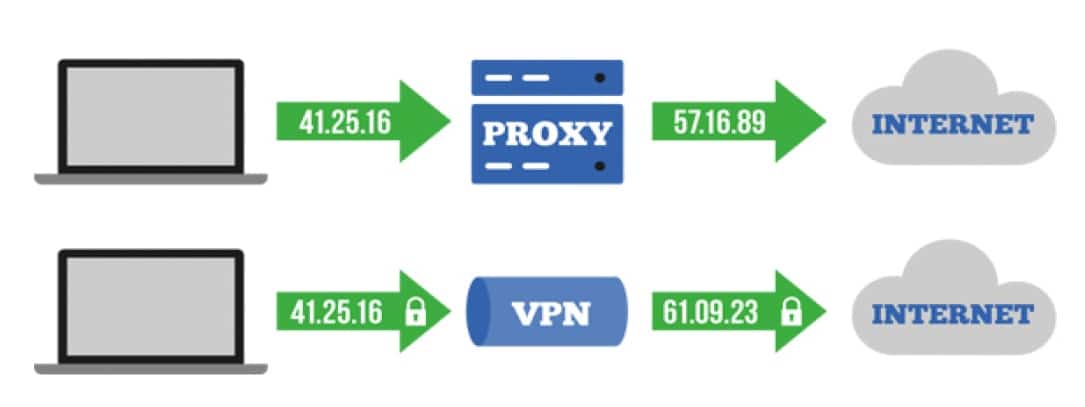
Secondly, a proxy tends to be a singular IP address that anyone can connect to. If it’s a public proxy many people can connect to it because there’s no password and authentication, and it’s usually available on the web. Public proxies are, generally speaking, not safe and shouldn’t be used.
A paid private proxy can technically still be accessed by multiple people, but if you pay for an individual elite proxy, only you (and your provider) will have the credentials to access it. A VPN will always require a login and authentication, and you will be assigned your IP address through the VPN server.
Security and Real Privacy
The above already touches on some of the big differences between VPNs and proxies. The first I’ll discuss is security and real privacy, as these are the core tenants of what most people want out of the technology.
Proxies
Proxies are billed as super secure and private because they hide your IP address. This is true, but it’s not quite that simple. The proxy technology will always do the basic job of replacing your IP address – a “proxy” itself is just another IP address you are connecting to, and it shows websites its own IP address instead of yours.

However there are multiple types of proxies, and each of them has specific security and privacy pluses and minuses.
- Free proxies. These will advertise anonymity, but they don’t really provide it. Free proxies and their providers often keep logs of your activity, do a poor job of hiding your IP address for more complex websites, and are notoriously slow. They can also install malware on your computer and track information you enter (like credit card and login info), so they’re not actually safe or private at all.
- Elite private proxies. These you will pay for, and with that money comes the chance for legitimate privacy. A good proxy provider will not keep logs of your activity (though it can), ensure that your IP address stays hidden no matter what website you are visiting, and is reliable.
These are the two main types, but there’s another, more technical factor to consider. Proxies are typically sold in three main formats: HTTP, HTTPS, and SOCKS. Each of these functions differently When it comes to security.
- This is the most basic, and therefore least secure. Most private providers supply HTTP proxies by default, and while they will hide your IP address or your geo-location well enough, it isn’t recommended to trust them for ultra-sensitive information, like bank account passwords.
- This is the more secure version of HTTP, and you’ll see many padlocked sites with HTTPS in the URL. This has become synonymous with a secure site. HTTPS proxies are typically more expensive and harder to find but allow for more security.
- This is technically a different kind of protocol and allows for completely secure transactions. SOCKS is typically the technology that VPNs are built on, so if you purchase SOCKS proxies, you will have the security functions of a VPN without the whole network.
VPNs
As you can hopefully tell (you’re paying attention, right?), VPNs are more secure and private than proxies. From a technological standpoint, they are essentially closed systems, and you can only access them with permission.
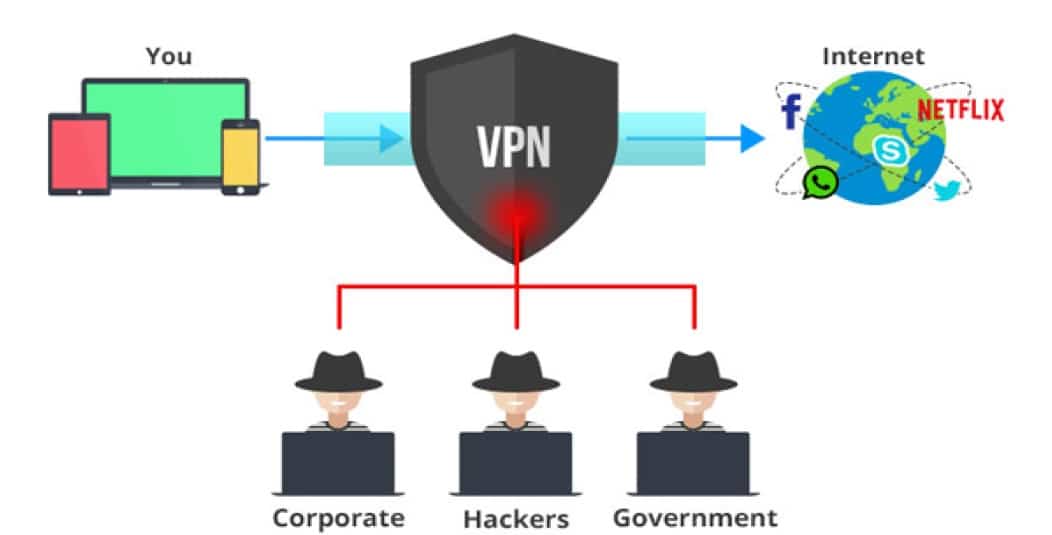
All traffic on your computer is hidden and private due to the tunneling method, which means governments and advertisers (your two greatest concerns) won’t be able to see what you’re browsing, downloading, or doing online.
If security is your main concern, go with a VPN.
The Caveat
The above is true for reputable paid VPNs, like TorGuard and Private Internet Access. However, there are two large issues that have come up with VPN networks, both paid and free.
The first is logging. While outside sources can’t see what you’re browsing and downloading, your VPN provider can if they so choose. You’ll want to sign up with services that explicitly say they don’t keep logs and have testimonials by major companies to back that up.
The second is less about your own privacy and more about the actions are taken with your internet connection. There are free VPNs — one of the most popular is Hola. As you can imagine, a free VPN is going to keep logs, so that’s an issue straight away.
The other issue with free services, Hola in particular, is how much access they have to your internet connection. In Hola’s case, the user agreement you sign to use the free software includes a specific clause that says Hola can use your bandwidth however they want. In effect they sell your bandwidth to the highest bidder via their another brand named as Luminati, You can learn how it works on this guide and research, which can result in malicious activities like DDoS attacks.
VPNs are usually based on peer-to-peer connections, which is what makes this possible. A paid service should never do this, but a free one often will — that’s why it’s free.
Connection and Encryption
One of the main differences between proxies and a VPN is how they connect to the internet.
Proxies
Proxies only connect to the internet through web traffic and requests. Most of your connection to the internet is based on web browsing, so this works for most users.
However, it means that your IP address and activity is only protected when you are using the internet for web browsing purposes. This includes using proxies with software that scrape the web, because they are reaching out to URLs to retrieve information.
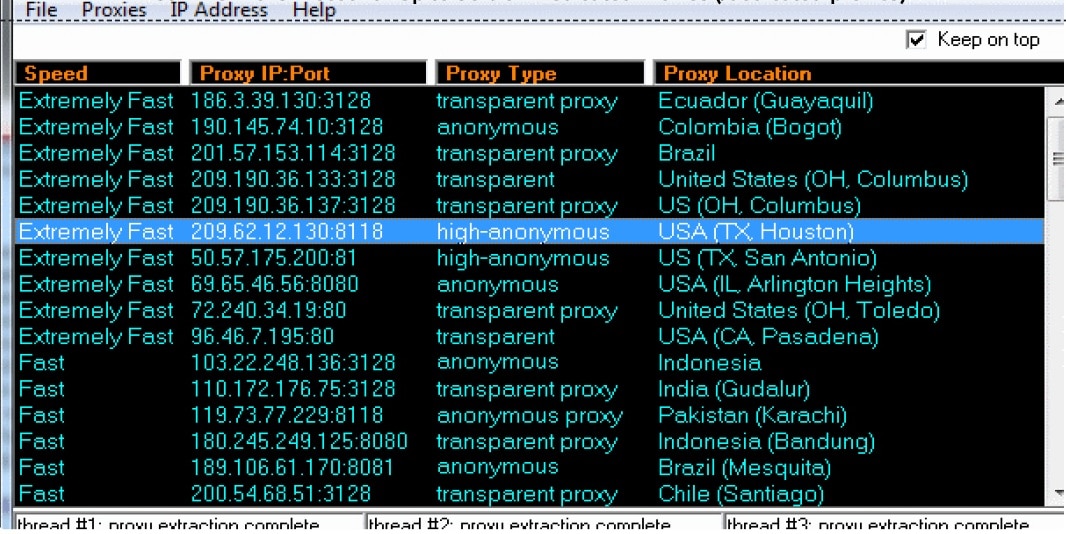
The downside is that this is limiting. It’s one of the reasons proxies aren’t a comprehensive solution to privacy and security, because we often connect to the internet in many more ways than a web browser.
VPNs
VPNs are much more comprehensive. A VPN service is not just an IP address and port you type into a software application or browser, but typically software you download and activate. VPN providers make the setup of this software easy. It’s about as complicated as setting up Dropbox — you just log in and turn the service on. Once you do this, all your internet-based traffic is encrypted, private, and not reachable by outside sources.
Speed
Connection speed can be an issue with both proxies and VPNs. By using either service you are placing a middle-man between you and the internet. If that middle-man resembles a DMV employee, it’s going to be a really slow day. Making sure your speeds are at least on par with your ISP speeds is important in either scenario, and most providers will state their speeds in very obvious places.
Proxies
Proxies tend to be faster than VPNs when using private, paid proxies. When this is the case, you have the pure, unfettered speeds your provider was selling to you, because you’re the only one accessing the proxy. This should only show up as a tiny slow-down when browsing.
However, if you’re using a free proxy, expect abysmal speeds. The same can be true for paid shared proxies, because anytime multiple users are on a single proxy, the amount of available speed goes down significantly.
VPNs
A great VPN is plenty fast, but due to the structure of the network they can be slower than proxies. The VPN functions as a giant hub, often in a peer-to-peer structure, so their speeds decrease during peak use hours. This matters if you’re a typical American that watches popular shows on Netflix at 8PM every night.
You’ll experience slower speeds because everyone is using the service at that time. Some networks are large enough to overcome this, which is one of the reasons getting a high-ranked VPN is important.
Common Uses
This is an important measure when it comes to proxies and VPNs, and I’ve already covered a number of use-cases above. I’ll mention some very clear things that each method has going for it so you, my dear reader, are sure in your decision.
Proxies
Proxies are best for individuals that want to hide web traffic, use the scraping softwares and social media tools, and be techy with the process. If you enjoy typing an IP address and password into your system settings and web browsers, proxies are for you.
Beyond hiding your IP and specific geographical location, proxies are best suited to those who use software to scrape massive amounts of data . These users usually burn through proxies and buy them in batches of 10-1000, using ScrapeBox and GSA SER to do a number of web tricks.
- Why the Harvester on Your ScrapeBox Isn’t Working
- Which Proxies Should I Use for GSA SER (Search Engine Ranker)?
This functionality makes proxies best for small business owners, entrepreneurs, and hackers (some of you are all three), because you aren’t tied to a single proxy or service and there are specific tools designed for you.
VPNs
These are best for casual users that want privacy, no geo-location restrictions, and torrenting capability. VPNs are the more recognized of these two in the general public because they are best for casual users.
They are not techy; as I’ve said, VPNs usually provide software for you to install and enable, thus opening up your computer to their service. You can torrent freely with these services, but only do this if your VPN doesn’t keep logs. Otherwise, you’ll potentially get sued someday.
VPNs are the best at getting around geo-location issues because they route all of your traffic through their system, rather than only web traffic. Sometimes that other traffic can be detected by certain websites, making your geo-location efforts null and void.
Cost
We’re at the last and final piece of this comparison. Price is probably pretty important to you. The good news is that neither VPNs nor proxies have to be expensive. The services I’ve mentioned or linked to above should run you anywhere from $3-$25 per month, depending on the level of access you need.
There are free models for both, but as I’ve said, these are not anonymous, secure, fast, or respected. They are free though, and you’re free to use them.
Proxies
Due to the more technical, singular nature of proxies, on the whole, they are cheaper for what you get. A single proxy per month will cost as much as a VPN service, so that’s not really the comparison I’m talking about. Most proxy users will want at least 10 proxies, if not hundreds.
The costs for these obviously go up into very large chunks of cash, but you can get 10 proxies for between $20-30 per month.
That will allow you to run your tests, keep your anonymity, and get a refresh of proxies when you need them.
VPNs
VPNs today are very inexpensive for base plans. Private Internet Access often has a deal that makes it about $3.50 a month for their basic services, which include the software, solid connection speeds, and unfettered access.
There are a number of excellent providers, each with slightly different clientele in mind. VPNs are really the way to go for non-technical, non-business oriented people, and they cost less than a typical content subscription, like Netflix or Hulu.
- Using Proxies to Stream Netflix and YouTube From Any Country
- How to Use Proxies in China to Bypass Blocks and Filters
Summing It Up
VPNs and proxies are similar beasts with very different use points. This guide hopefully clears up your confusion. I do want to note, though, that each of these services can get much more complicated if you continue to dive in. If this sort of thing fascinates you, continue to read as much as you can, and start experimenting.
Related:

